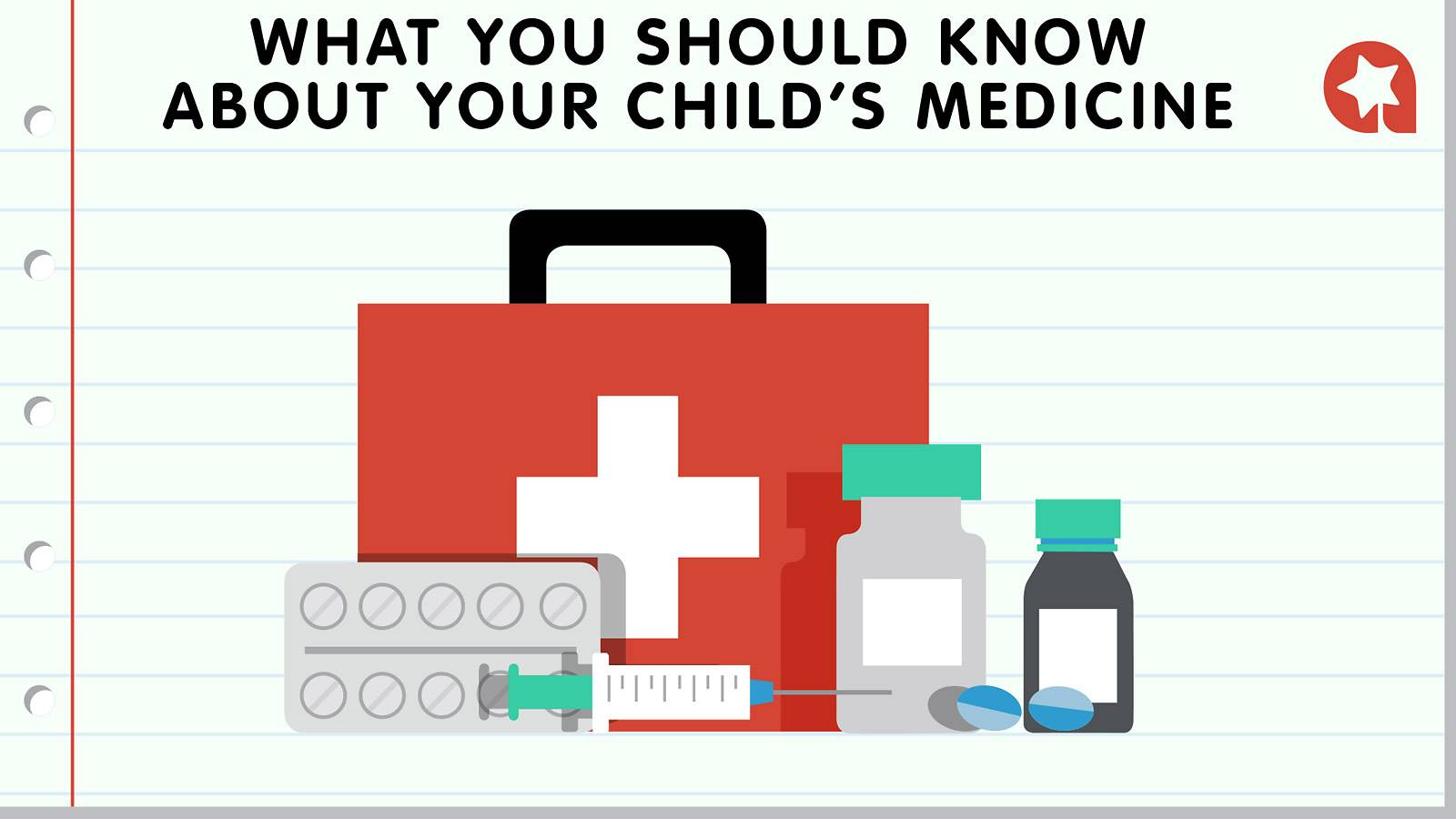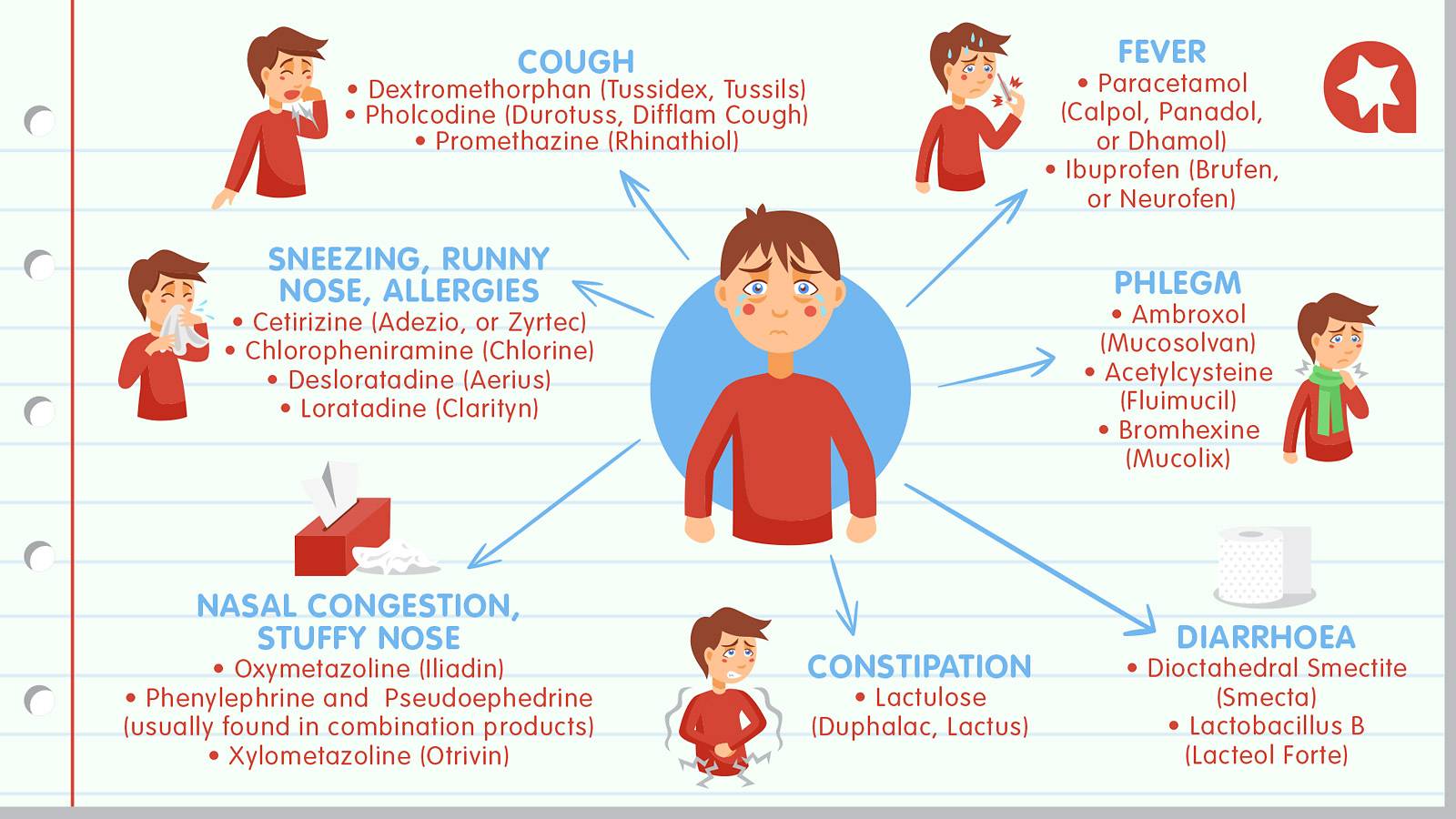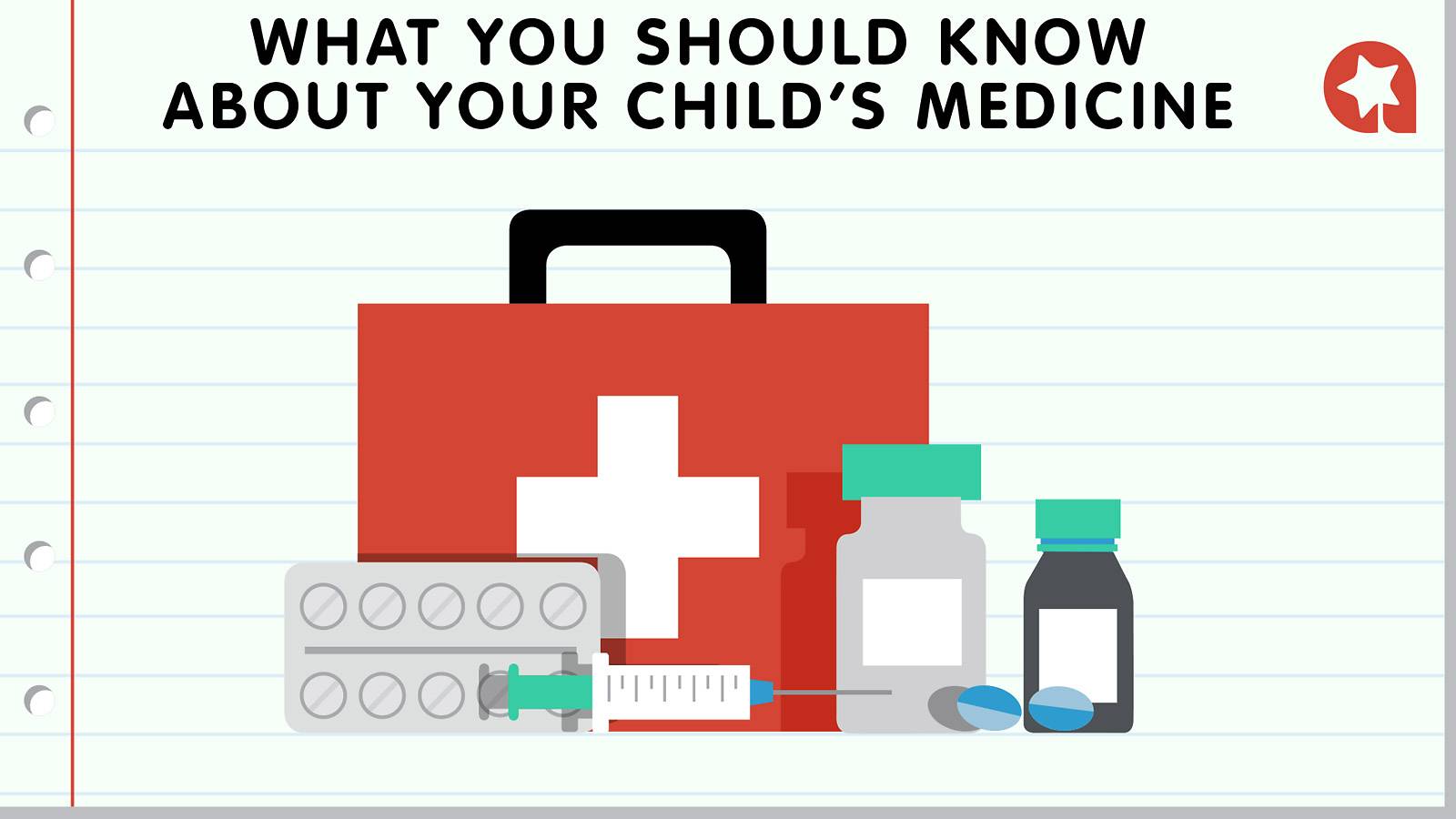An expert lists common medicines for kids, plus has tips on the proper way to handle and store them.
Whether it’s the common cold or a fever, you’ll probably reach for medicines you trust to help your sweetie feel better again. But how much do you know about the drug the doctor has prescribed?
To treat your child’s illness effectively, it’s good to know what symptom each medication is targeting. This way, you won’t duplicate the meds or administer the wrong one. Watsons pharmacist Kaye Lee has tips on the medicines used to treat common symptoms.


Note: The information given is for reference purposes and should not be used as a substitute for a healthcare professional’s advice. Always check with a doctor or pharmacist before taking any medication or supplement.
Continue reading for more medicine tips, including storage hints…
WHAT ELSE TO NOTE:
• Over-the-counter medicines
These are generally suitable for children under 2 years, but it’s always best to check the product insert. For kids under 2, parents should check with a doctor or pharmacist before using the medication. Also, follow the insert’s instructions on how to administer the meds.
• Herbal and natural extracts
Syrups, oils or inhalants that target coughs and colds and contain ingredients like eucalyptus oil or extracts of ivy leaf extract, peppermint, loquat and honey can be used as to treat mild symptoms.
• Side effects
Some medicines, like chloropheniramine and promethazine, can cause drowsiness. If you’re worried that a medicine will affect your child’s concentration in school, ask if there’s a non-drowsy option.
• Length of use
Consult a doctor or pharmacist if the medicine is not working ― it might be inappropriate or your little one might need more medical attention. Nasal drops and sprays can offer quick relief for nasal congestion, but they should only be used for several days and not more than one week. Excessive and extended use can worsen the nasal congestion.
• Storage
Keep liquid medicine in a cool and dry place, away from sunlight. You can keep unopened liquid preparations till its expiry date. However, once opened, you should discard it 6 months from the date you open it. You only need to refrigerate liquid medicines if they do not contain preservatives ― check with a pharmacist or doctor if you’re unsure.
Illustration: Paulyn Ngk
Like us on Facebook and check SmartParents regularly for the latest reads!
Stories you may also like…
BUYER’S GUIDE 7 ways to clear bubba’s stuffy nose
Is your house making your child sick?
